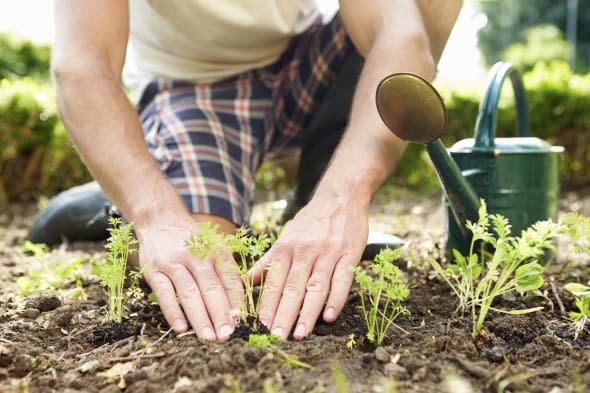Living the good life

From growing our own veggies and brewing beer to keeping chickens and bees, more of us Brits are enjoying the good life - and saving cash in the process. Here are some ideas to get you started...
Related Searches
Fruit and vegetables
Grow your own fruit and vegetables – like cabbages, pumpkins, potatoes and strawberries - and you could save as much as £1,300 a year according to the National Allotment Society. Even if you don't have a sizeable garden, you can still grow a surprising amount in containers and pots. Tomatoes and chilli peppers are easy to grow for beginners. Many towns and villages run allotment schemes, which can cost £25 upwards a year, though some have long a long waiting list, so get your name down early.
%VIRTUAL-AFCSponserAds%Keeping chickens
It is estimated that a million people keep hens in the UK. If you have a good-size garden, keeping chickens can be a good money saver. A chicken will set you back about £15, but could lay as many as 300 eggs a year. You'll also need to pay a coop and fencing to keep them safe from foxes, plus feed (which will set you back around £20 each year). For advice on which breeds to keep and how to care for them, try the Hen Keepers' Association or the Poultry Club of Great Britain.
Keeping bees
It can take more than one season for your bees to even start producing honey, but once they do, you could make 40-60lbs of honey per colony per year, depending on your extraction skills. If you're new to beekeeping, it's best to get advice from your local Beekeeping Association, most of which offer introductory courses with trips to an apiary, to give you an idea of what's involved.
Bee providers tend to charge upwards of £160 for a hive of bees but it depends where you are in the UK and how many you are buying. There are many varieties of basic starter hives available, such as the National. You may need to buy extras such as brood and super frames, foundation wax sheets and mouse guards. You'll also want to invest in a good quality, full body bee suit with an inbuilt veil. Hygienic gloves are also an essential, as is a hive tool, for moving frames, and a smoker to calm the bees whenever you need to work.
Try a specialist online store, such as bees-online.co.uk or beekeeping.co.uk for necessary equipment. If you're just starting out, you may be able to buy secondhand/borrow equipment via your local Beekeeping Association. Just be sure to sterilise used equipment to guard against bee diseases.
Brew your own beer
Home-brewing isn't as tricky as you might think and making your own could save you a small fortune. You'll need to invest in some kit – namely a 25 litre fermenting bin with lid, a syphon (or plastic hose), a paddle for stirring, steriliser to keep your equipment contaminate-free and bottles or a barrel for the finished product.
Starter kits with equipment, instructions and ingredients cost around £60. It will take two to three weeks until your brew is ready, though if you can wait a couple of months, it will improve with age.
Are you living the 'good life'? Leave a comment below...




